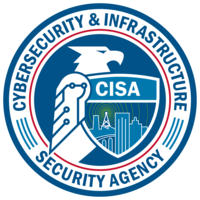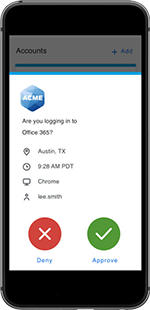Do Your Part. #BeCyberSmart.
 Phishing and social engineering campaigns are the #1 source of ransomware and other malware1. Reduce your chances of your falling victim to phishing attacks!
Phishing and social engineering campaigns are the #1 source of ransomware and other malware1. Reduce your chances of your falling victim to phishing attacks!
- Update your passwords. Consider using the longest password possible. Be creative and customize your passwords for different websites. Use a password manager to keep track of them.
- Enable two-factor authentication on your accounts where available.
- Limit the information you post on social media. Cybercriminals use public information to know you better, so be sure to keep personal information safe from strangers.
- Keep track of your apps. Make sure your apps are up-to-date and check your app permissions.
- Update your computer and mobile devices.
- Make sure your antivirus is up-to-date and running.
- Stay protected while connected. Only connect to legitimate wireless hotspots. Avoid sensitive activities on public networks and only use sites that begin with “https://” when shopping or banking online.
- If an email looks suspicious, do not respond and do not click on any links or attachments. When available, “Report phishing” to block other suspicious emails.
 Beginning in October, Duo Security — the technology behind
Beginning in October, Duo Security — the technology behind  Scams targeting students are being reported from local universities. Phishers and imposters, disguised as employers and government officials, are tricking students into handing over money. Some of the scams may offer a job opportunity or threaten the recipient with prosecution from a foreign government.
Scams targeting students are being reported from local universities. Phishers and imposters, disguised as employers and government officials, are tricking students into handing over money. Some of the scams may offer a job opportunity or threaten the recipient with prosecution from a foreign government. With final grading for some classes finishing up in AARC and all future student information activity having moved to
With final grading for some classes finishing up in AARC and all future student information activity having moved to